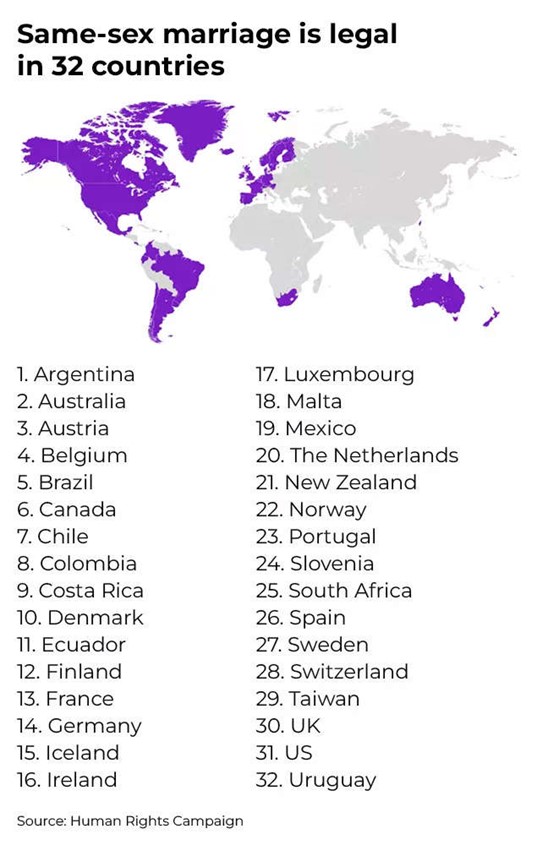PREVIOUS
LGBTQ+ Rights in India – Part 4
(இதன் தமிழ் வடிவத்திற்கு இங்கே சொடுக்கவும்)
Reasons behind the center’s opposition
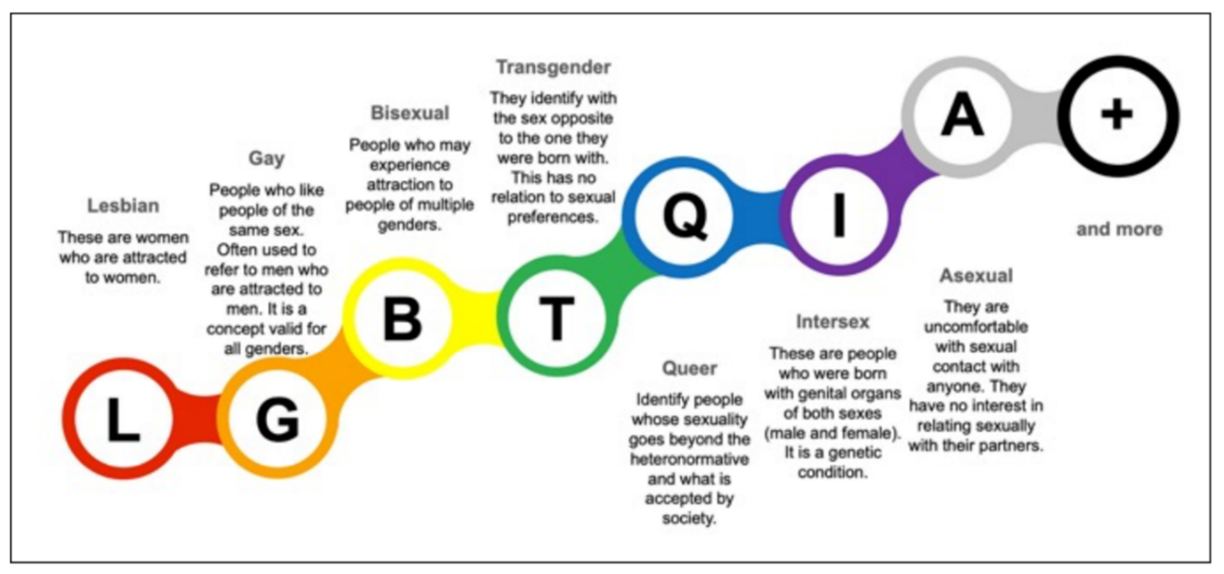
Legal revamp required
- The registration of marriage of same-sex persons also results in a violation of existing personal as well as codified law provisions — such as ‘degrees of prohibited relationship’; ‘conditions of marriage’; ‘ceremonial and ritual requirements’ under the personal laws governing the individuals”.
Definition of spouse
- In a same-sex marriage, it is neither possible nor feasible to term one as ‘husband’ and the other as ‘wife’ in the context of the legislative scheme of various personal laws.
Against cultural norms
- The social order in our Country is a religion based which views procreation as an obligation for the execution of various religious ceremonies.
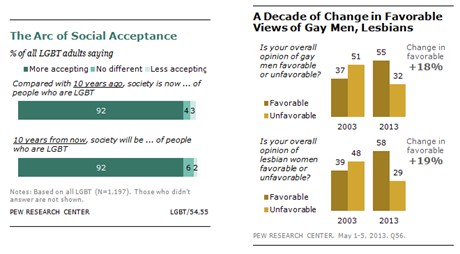
Property and other civil rights
- Property rights post-marriage is a much-contested issue in India.
- Same-sex marriage will not create any immunity for the law but increase complex interpretations.
Navtej case did not mention marriages
- The 2018 Navtej Singh Johar judgment decriminalized homosexuality.
- But it did not mention/legitimize same-sex marriage.
Not comparable to the heterosexual couple
- Same-sex marriage cannot be compared to a man and woman living as a family with children born out of the union.
Interest of society
- There is a “compelling interest” for society and the state to limit recognition to heterosexual marriages only.
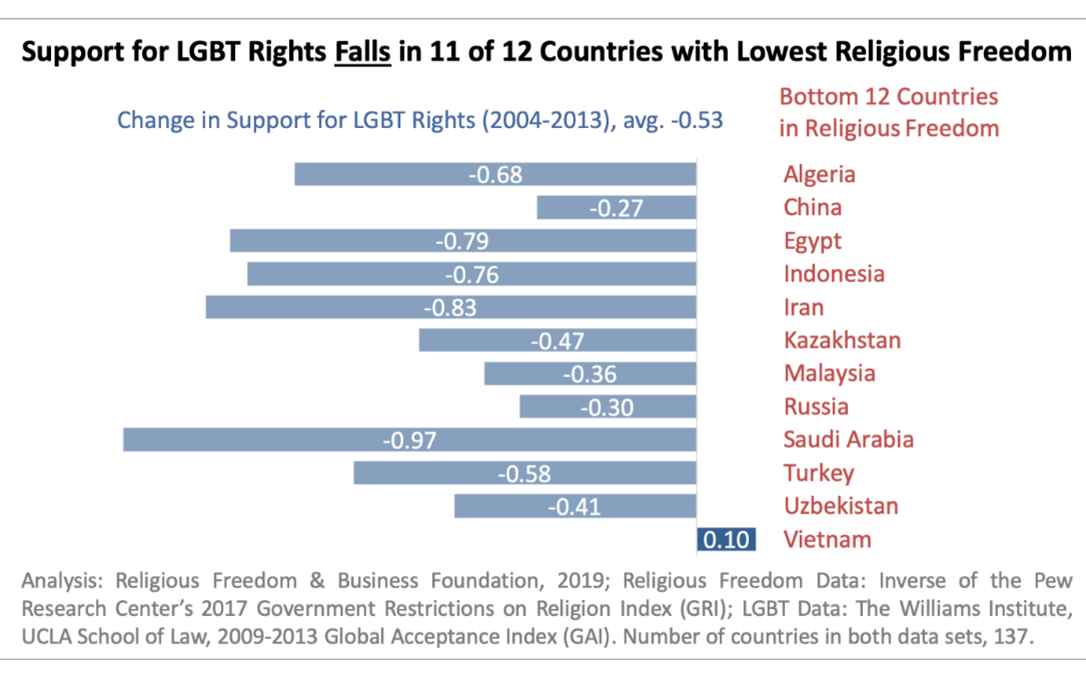
Way forward
Dissociating from religion
- Such marriages are forbidden in almost every religion.
- Hence no single religion should be considered a hindrance in creating a legal sanction.
Doing away with discrimination
- The same-sex community needs an anti-discrimination law that empowers them to build productive lives and relationships irrespective of gender identity.
Letting the society evolve
- Society has to imbibe the doctrine of progressive realization of rights.
- It cannot be forcibly convinced by law.
Creating awareness
- Certainly, this is not an overnight phenomenon.
- We are a society where the practice of Sati and Nikah halala was considered a religious order.
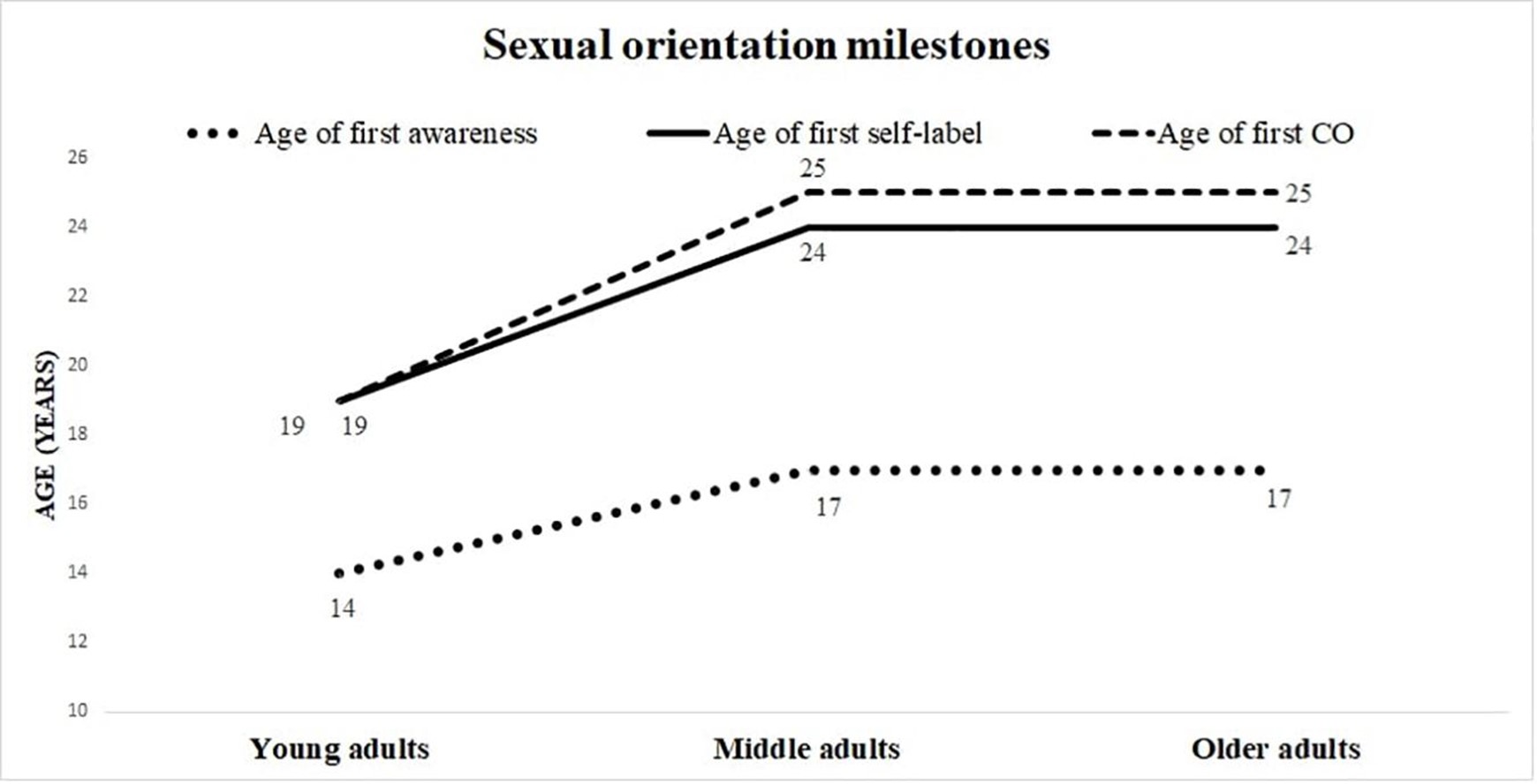
Widen the scope of article 15 to include gender too
- Article 15 secures the citizens from every sort of discrimination by the state, on the grounds of religion, race, caste, sex or place of birth or any of them.
- The grounds of non-discrimination should be expanded by including gender and sexual orientation.
Sensitize the general public and officials
- Justice Rohinton F. Nariman had directed in Navtej Singh Johar & Ors., the Government to sensitize the general public and officials, to reduce and finally eliminate the stigma associated with the LGBTQ+ community through the mass media and the official channels.
Sensitize students
- School and university students too should be sensitized about the diversity of sexuality to deconstruct the myth of heteronormativity.
- Heteronormativity is the root cause of hetero-sexism and homophobia.
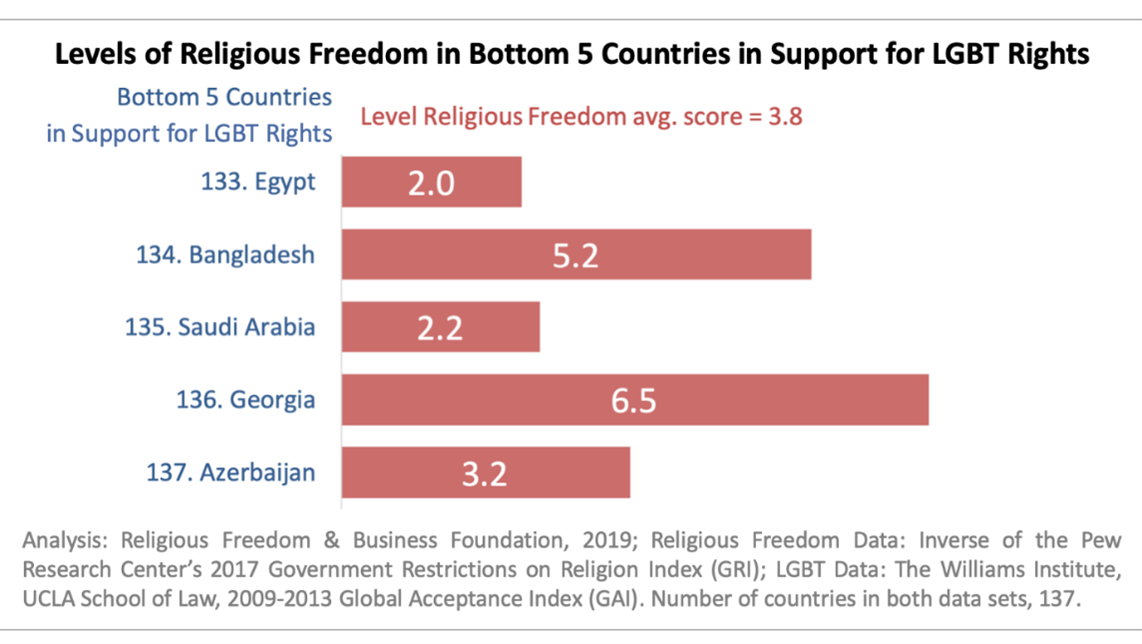
The impacts of the verdicts to LGBTQ community
Social impact
- They live with dignity, respect, freedom as normal as like other genders.
Educational impact
- They can take higher education, schooling and jobs.
Personal impact
- They are free to choose their partners too and live in a peaceful environment.
- Protection against the discrimination.
The challenges faced by LGBTQ community
Employment
- Gender revelation in work place due to fear of job loss.
Schemes
- Denied access to social protection schemes such as health care and pensions.
Lack of communication
- Lack of communication between LGBT children and parents often leads to conflict within families.
Hate crime
- Isolation from the society and victims of hate crimes.
- Forced begging and human trafficking.
- No child adoption rights.
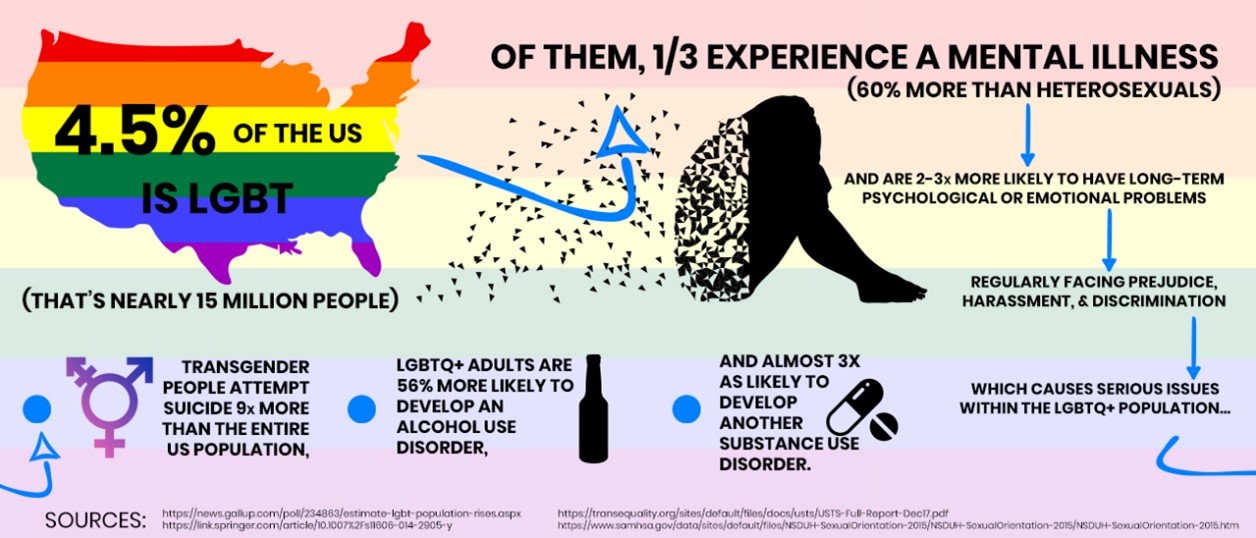
Same Sex Marriage in India vs Across the World
History of Recognition of LGBTQIA+ In India
- In 1861, Britishers considered sexual activities “against the order of nature” including all homosexual activities to be criminalized under Section 377 of the Indian Penal Code.
- In 1977, Shakuntala Devi published the first study of homosexuality in India.
- It was called “The World of Homosexuals”.
- In 1994, they were legally granted voting rights as a third sex.
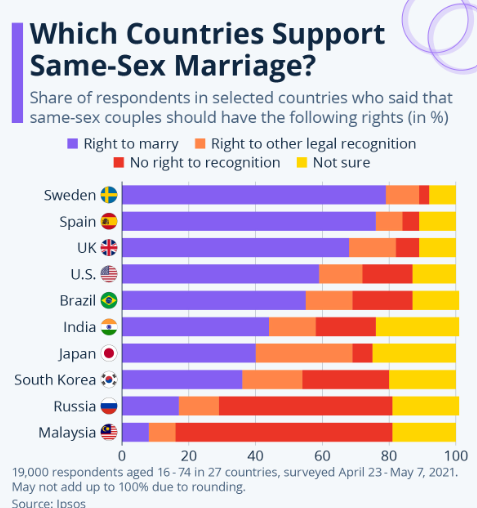
- In 2014, the Supreme Court of India ruled that transgender people should be treated as the third category of gender.
- In 2017, the Supreme Court gave the country’s LGBTQIA+ community the freedom to safely express their sexual orientation.
- An individual’s sexual orientation was protected by the Right to Privacy.
- On 6 September 2018, the Supreme Court struck down the part of Section 377 which criminalized consensual homosexual activities.
- In 2019, Parliament enacted Transgender Persons (Protection of Rights) Act with an objective to provide for protection of rights of transgender people, their welfare, and other related matters.
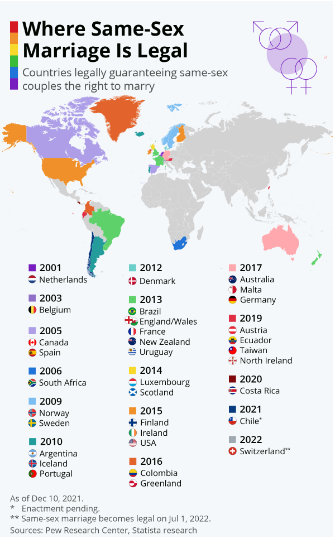
Many countries recognized
- According to global think tank Council of Foreign Relations, same-sex marriages are legal in at least 30 countries, including the United States, Australia, Canada and France.
- In Obergefell v Hodges (2015), the Supreme Court of the United States held that same-sex couples have a constitutional right to marriage.
- Thirty-one out of the 50 states in the United States have marriage laws that define marriage as between a man and a woman.
- In May 1996, South Africa became the first country to constitutionally prohibit discrimination based on sexual orientation.
- The United Kingdom passed the “Alan Turing law” in 2017.
- It ‘granted amnesty and pardon to the men who were cautioned or convicted under historical legislation that outlawed homosexual acts.
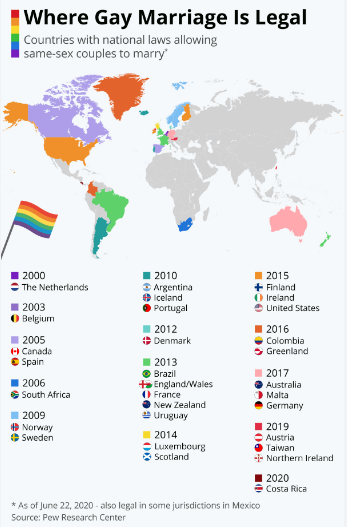
|
Country |
Law |
|
Netherlands |
The Netherlands became the first country to give Same-sex couples the legal right of marriage and adoption. |
|
Canada |
In 2005, Canada’s federal legislature legalized same-sex marriage. |
|
South Africa |
In 2006, South Africa became the first country in Africa and the first country in the Southern Hemisphere to legalize same-sex marriages. |
|
Argentina |
In 2010, Argentina became the first country in Latin America to legalize same-sex marriages in the country. |
|
New Zealand |
After received approval from the crown in 2013, New Zealand became the first country in the Asia-Pacific region to allow same-sex marriage. |
|
England and Wales |
After approval from the queen, same-sex marriage in England was legalized through a Parliamentary measure. |
|
Ireland |
Ireland legalized same-sex marriages in the country in 2015 through a popular referendum, making it the first country to legalize such marriages by popular vote. |
|
United States |
After a decision by the Supreme Court in 2015, protecting the rights of people in marriages, the federal government approved same-sex marriages. |
|
Taiwan |
Taiwan became the first Asian country to legalize same-sex marriages after the country’s Constitutional Court found a law recognizing marriage as between a man and a woman to be unconstitutional. |
|
Estonia |
Estonia’s parliament approved same-sex marriage in June 2023. It is making the first ex-Soviet and first Baltic country to do so. |

- Homosexual couples face stigma and marginalization from their families, communities, and workplaces.
- Legalizing same sex marriage in India would not only have provided legal recognition and protection for LGBTQ+ couples.
- But also, could promote greater social acceptance and reduce discrimination against the marginalized communities.
- The debate on the legal recognition of same-sex marriages in India continues to be a contentious issue, with the government and petitioners presenting opposing views.
- However, given the complex social, cultural, and legal considerations, any decision regarding same-sex marriage should be carefully evaluated to ensure that it is inclusive and respects individual rights.
- Ultimately, it is important to arrive at a balanced and just solution that upholds the principles of equality and non-discrimination for all individuals, regardless of their sexual orientation.
